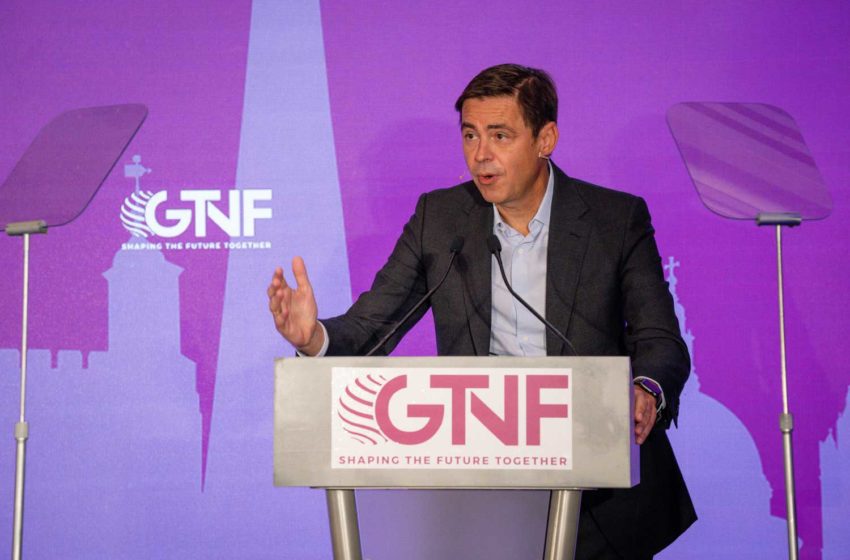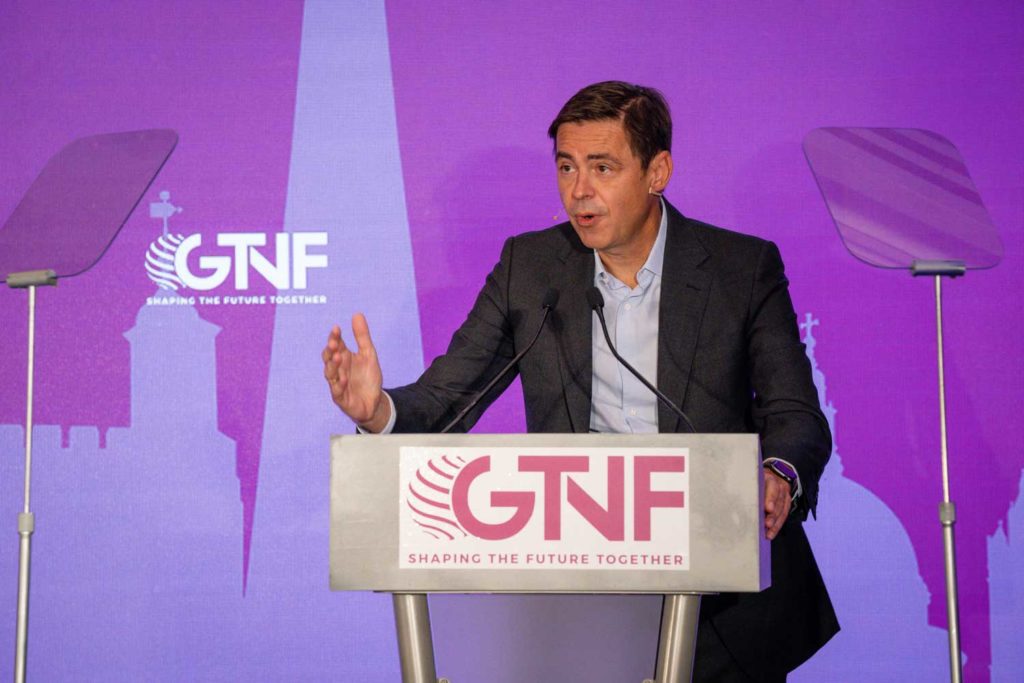Bonus Content: Stefan Bomhard


Stefan Bomhard, CEO of Imperial Brands, highlighted how the industry has changed in the past couple years and how companies have dealt with these changes.
“We’ve seen huge innovations and the growing diversity of products,” he said. “These have given adult consumers exciting, new and potentially healthier alternative choices.”
Bomhard focused on the idea of challengers. He recalled his presentation at the 2021 GTNF, when he described Imperial, the smallest of the tobacco and nicotine companies, as the industry challenger. “Challengers drive increased consumer choice. They stimulate stronger competition, and they spur on innovation,” he said.
The way to success for challengers, according to Bomhard, is by doing things differently—getting closer to consumers, being more agile and collaborating better with partners as well as recognizing limitations.
Following his statement two years ago that Imperial could be the challenger in the industry, the company has made changes. “We haven’t always gotten it right,” he said. “That is the nature of business, of innovation, of trying new things.” Imperial has since created new capabilities in consumer insights, marketing and sales. The company has also invested in data and unifying dozens of legacy systems into a single solution. The company’s changes and investments have paid off, according to Bomhard. Imperial has stabilized its core combustible business and has credible offerings in all three of its next-generation product (NGP) categories. The company is starting to make meaningful contributions to reduce harm, he said.
Circling back to his 2021 talk again, Bomhard reiterated that every consumer is different. Since then, Imperial has conducted the largest piece of consumer research in the category’s history, focusing on what is called “demand spaces.”
The research breaks down the lives of consumers to individual moments when they enjoy tobacco and nicotine products, giving the industry a more nuanced understanding of how consumers are moving toward potentially healthier choices. The data showed that next-generation products are used more often when consumers are outside of the home and with other people while more traditional combustible products are more often used at home during periods of alone time.
The research shows that “NGPs are no longer a niche category,” Bomhard said.
“We still need to be humble,” he said. “The fact that there are large spaces in people’s lives where our new products have yet to find a firm footing means together, we still have much more work to do. We need to work harder together to create even better alternatives to the traditional cigarette.
“Innovation, partnership and deepening the industry’s ecosystem are now more important than ever. And we need to provide reassurance to those consumers who are reluctant to consider alternatives to smoking. That means finding new ways of communicating the potential harm reduction benefits of NGPs.
“Sadly, too many people still believe that vaping or heated tobacco is just as risky as smoking. And it means we need to use our collective experience to help policymakers build more orderly regulatory environments that inspire greater trust among adult consumers.
“It is becoming clearer that in our industry, there will be no silver bullet, no single winner who takes it all. Consumers are not converging around a single product or category. Instead, they’re choosing different products for different occasions in their lives.”
He went on to discuss how different countries are developing and cultivating their own distinctive nicotine cultures and how this makes it clear that there is “room for many players in this industry.”
“The journey to the future typically never runs in a straight line,” he said, noting that the industry must continue navigating emerging challenges. “I am an optimist, and I believe that if, collectively, we continue to stay close to our consumers and continue to work openly and collaboratively, there’s a bright and healthier future ahead.”
